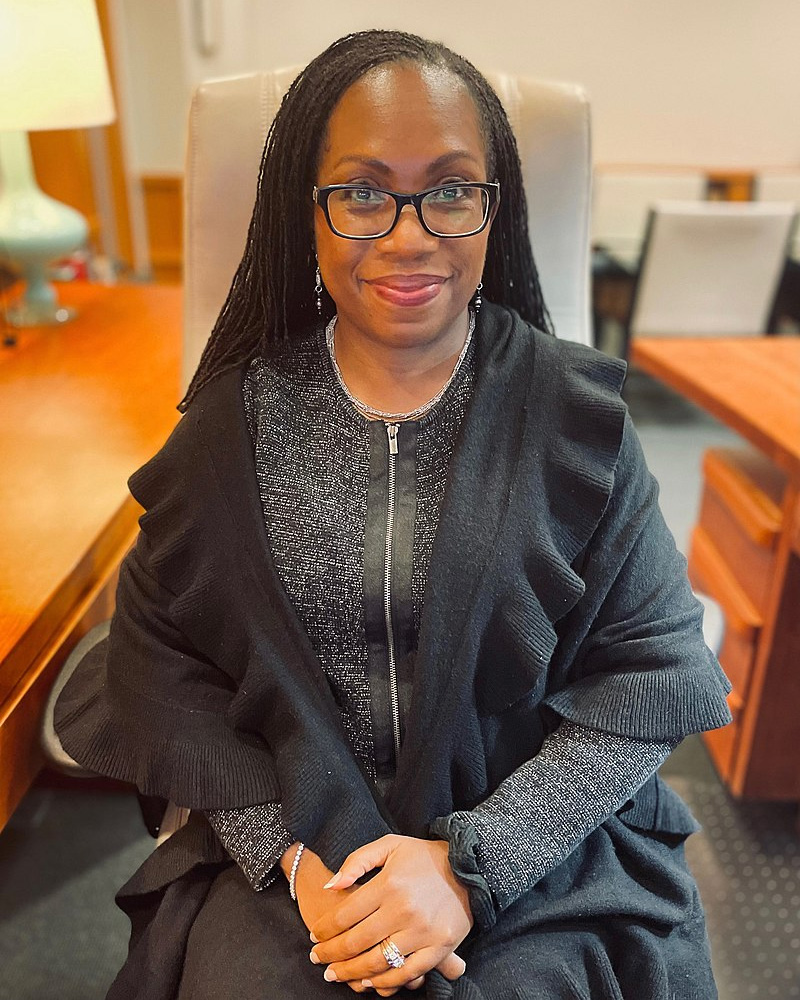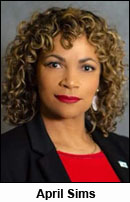OPINION
The beauty and burden of being first
Organized labor celebrates Justice Ketanji Brown Jackson and the many other Black women leading us forward and giving us hope.
By APRIL SIMS
(April 8, 2022) — Ketanji Brown Jackson’s historic confirmation to the United States Supreme Court is a step towards ensuring the highest court in the land looks like the country it serves. Jackson’s previous work as a public defender, advocate for working people, and her lived experience as a Black woman in America will bring nuance and careful study to the court’s work on important issues that impact working families.
Through a polarizing, partisan, and at times ugly confirmation process, Justice Brown Jackson exhibited grace, poise, and wisdom. You might have found her demeanor familiar; after all, it’s the same armor Black women across America don every day. That armor is all the more essential when you’re the “first.”
 As the first Black woman Justice in this country’s history, Justice Jackson is shattering barriers and opening doors for Black women, girls, and femmes nationwide. In the celebration of her confirmation we see the beautiful potential of what this country can be – a land of opportunity for all.
As the first Black woman Justice in this country’s history, Justice Jackson is shattering barriers and opening doors for Black women, girls, and femmes nationwide. In the celebration of her confirmation we see the beautiful potential of what this country can be – a land of opportunity for all.
But in her confirmation process, we also saw some of the ugliest parts of this country laid bare as right-wing politicians spat out baseless, disturbing allegations crafted to demonize the first Black woman – and one of the most qualified candidates – ever nominated to the Supreme Court. Despite her previous bipartisan confirmation to a lower court, Senate Republicans subjected Jackson to hours of bad-faith questioning that both disrespected Jackson’s qualifications and character, and made political fodder out of violence against children.
For all the beauty of being first, it is also a burden. There is a personal cost. The virulent racism and prejudice weaponized by right-wing politicians and pundits alike takes a toil. As a Black woman watching the confirmation hearings 3,000 miles away, it was brutal to watch; I can only imagine what it felt like to take racist attacks from U.S. Senators on the chin. Still, I’m filled with joy, love, and hope. Nothing can diminish the power and potential of this moment.
Real talk: if we’re serious about building power for working people, we need Black women to seize their power and take on leadership roles. Not to fill some diversity quota, but to effect real change, to fight the exploitation of working people. As I wrote during Black History Month:
Black folks’ role as both central to our economy yet exploited is born of a unique history of racialized oppression and marginalization; but Black workers are not the only working people who are essential, yet exploited. Frankly, most working people are.
So we see that when we center Black working people, when we focus on the issues that constrain the potential of Black folks, we are attacking and dismantling the barriers that all working people face.
Black women’s leadership is necessary for growing our movement. But it is not a simple thing to ask Black women to lead. Asking Black women to lead means asking Black women to take on roles that expose us to racist, sexist attempts to diminish our worth. It often means asking Black women to defend and advocate for folks who don’t respect our humanity, to persist, to innovate, and to be accountable to systems that were built to exclude us. Sometimes, it means loving institutions that don’t love us back.
As the first woman of color and Black person to serve as an officer of the Washington State Labor Council, AFL-CIO, I understand the complexities of being first. I’m proud of the work I’ve done in office. And I am proud of the many folks in our movement who have rallied around me, supporting the beauty of Black women’s leadership and helping to shoulder the burden. We all have a role to play in reimagining what’s possible in our movement. That unwavering support is essential for ensuring Black women are able to build power for all of us, and together grow an equitable movement for all working people.
One day we’ll live in a world where it’s common for leadership to look like us. The actions we take today are building that world. Until then, we celebrate brave firsts like Ketanji Brown Jackson and the many Black women across this country taking on the beautiful burden of leading us forward, and giving us hope.
 April Sims of Tacoma is Secretary Treasurer of the Washington State Labor Council, AFL-CIO. The WSLC is the largest labor organization in Washington state, representing the interests of more than 600 local unions and more than 550,000 rank-and-file union members. Learn more at wslc.org.
April Sims of Tacoma is Secretary Treasurer of the Washington State Labor Council, AFL-CIO. The WSLC is the largest labor organization in Washington state, representing the interests of more than 600 local unions and more than 550,000 rank-and-file union members. Learn more at wslc.org.





